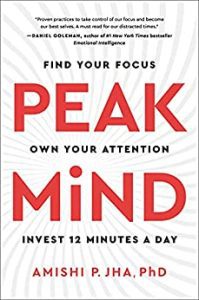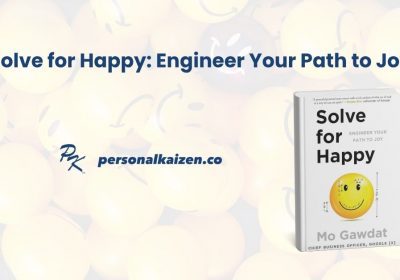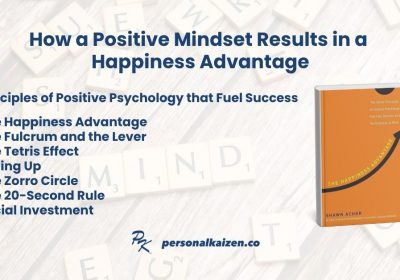
I plan to begin a new meditation practice habit and recently heard Amishi Jha speak about the benefits. Amishi is a professor of psychology and neuroscientist at the University of Miami and the director of Contemplative Neuroscience for the UMindfulness Initiative.
Meditation is a great way to follow Rule 4 (Live in the moment with a positive mindset) of the Personal Kaizen 10 Rules for Life. I am very busy already so want to begin a meditation practice that provides benefits to my focus, attention, and attitude with the minimum amount of time and effort. Amishi has spent the past 30 years studying working memory, attention, and mindfulness. I was excited to hear her speak recently about her research on the minimum effective dose of meditation.
Mindfulness Study with the US Military
Amishi needed a stressed group of people for a mindfulness experiment she designed. She chose to study the focus of Marines – some of whom practiced short, daily mindfulness meditation and some who did nothing. Amishi found that without intervention, attention is compromised, and attentional lapses increase. The active-duty military service members who practiced a 12-minute daily meditation practice were more focused and mindful.

Amishi shares more about her research into minimal effective meditation in her new book, PEAK MiND. The book includes easy-to-adapt 12 minute-a-day exercises to declutter your mind and strengthen focus.
The recommended 12-minutes of mindfulness meditation is just a minimum effective amount; if you are able to meditate for longer you can gain additional benefits. But be careful – the Personal Kaizen team recommends you set a simpler goal as you develop your habit. I am going to set an initial goal of meditating for just one minute per day.
Amishi’s TED Talk
Check out Amishi’s TED Talk on “How to tame your wandering mind.” This talk is from 2018 and shares more about her studies on mindfulness.
Loving Kindness Meditation
I have been interested in trying a mediation practice that helps improve your attitude rather than your focus. Amishi recommends a simple “Loving Kindness” meditation practice she uses. In the practice, Amishi asks you to think about yourself first, then your partner or others close to you, then neutral people who you don’t know as well. As you think about yourself and others, repeat these four simple mantras:
- May I be happy
- May I be healthy
- May I be safe
- May I live with ease
Every time you repeat these phrases, gently think positive thoughts about what you want for yourself and others.





Thank you Steve for posting this book, Peak Mind by Amishi Jha. From the recommendations of that book, I’ve built a meditation routine that I’m now using:
While sitting with eyes closed…
1. Begin with three slow, deep breaths that you hold for a few seconds, in with your nose, out with your mouth.
2. Body Scan – take a moment to focus on every part of your body, scanning up and down your legs and feet, up to your torso, up and down your arms, your shoulders, your neck, and your head.
3. Repeat #1
4. Say to yourself, I wish myself to be happy, I wish myself to be healthy, I wish myself to be safe, I wish myself to live a life of ease; then wish the same for your spouse, your family in general, your friends in general, your customers in general and your colleagues in general. Also, wish the same for a stranger you met yesterday. And if there’s one individual who you know is struggling, do the same for them.
5. While standing, repeat #1
6. While still standing, eyes closed, palms out. Picture a flowing river and try to stay focused on the river flowing by; If someone or something pops into your thoughts, just watch them drift slowly by in the river. If too many thoughts pop in, picture a rock in the river and focus on that. (I have been doing this with a YouTube of a river and nature sounds).
7. Repeat #1
The recommended goal from Jha is to get to 12 minutes and to do this five times a week. I started at 5 minutes and worked my way up, adding 1 minute per week.